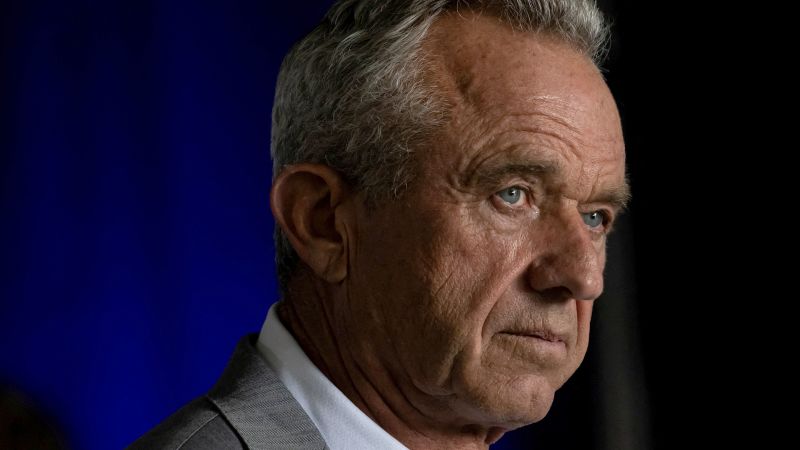
How RFK Jr.’s presence on the Maine ballot could delay a projection in the 2024 race
CNN
The 2020 presidential election took days to be decided, but it’s possible that 2024 could take even longer, thanks to a specific voting process used in two states that aren’t typically the focus of national political campaigns.
The 2020 presidential election took days to be decided, but it’s possible that 2024 could take even longer, thanks to a specific voting process used in two states that aren’t typically the focus of national political campaigns. Maine and Alaska each use ranked choice voting to determine the winners of their electoral votes for president, and with independent Robert F. Kennedy Jr. on the ballot in Maine and aiming to qualify for access in Alaska, it’s more likely that this process will come into play. Under the system, voters rank the candidates in order of preference. If someone wins a majority of first-choice votes, that candidate is elected. But if not, voters’ other choices are used to determine a winner. First, the candidate with the fewest first-place votes is eliminated. The votes that had gone to that candidate are then redistributed to the second choices listed on those voters’ ballots. The process continues until a winner with majority support emerges. Advocates for ranked choice voting argue that the process minimizes the issue of “spoiler” candidates by allowing voters to support both the candidate they like best and a candidate more likely to win. But one of the downsides of the system is that it can take some time to get a final result. In Maine, for example, if no candidate wins a majority on election night, election officials must gather vote data from across the entire state and deliver it a central location in the state capital, where the actual tabulation takes place. That process could take more than a week, the Maine secretary of state’s office told CNN in 2020.

Over a recent dinner at his private Bedminster, New Jersey, club, as President Donald Trump recounted his move against the country’s top economic statistician and riffed on New York City politics, the conversation turned to a politically potent issue still in flux: loosening federal restrictions on marijuana.

 Run 3 Space | Play Space Running Game
Run 3 Space | Play Space Running Game Traffic Jam 3D | Online Racing Game
Traffic Jam 3D | Online Racing Game Duck Hunt | Play Old Classic Game
Duck Hunt | Play Old Classic Game










